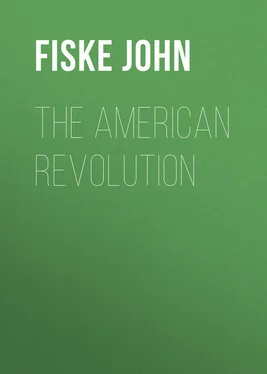John Fiske - The American Revolution
Здесь есть возможность читать онлайн «John Fiske - The American Revolution» — ознакомительный отрывок электронной книги совершенно бесплатно, а после прочтения отрывка купить полную версию. В некоторых случаях можно слушать аудио, скачать через торрент в формате fb2 и присутствует краткое содержание. Жанр: История, foreign_antique, foreign_prose, на английском языке. Описание произведения, (предисловие) а так же отзывы посетителей доступны на портале библиотеки ЛибКат.
- Название:The American Revolution
- Автор:
- Жанр:
- Год:неизвестен
- ISBN:нет данных
- Рейтинг книги:4 / 5. Голосов: 1
-
Избранное:Добавить в избранное
- Отзывы:
-
Ваша оценка:
- 80
- 1
- 2
- 3
- 4
- 5
The American Revolution: краткое содержание, описание и аннотация
Предлагаем к чтению аннотацию, описание, краткое содержание или предисловие (зависит от того, что написал сам автор книги «The American Revolution»). Если вы не нашли необходимую информацию о книге — напишите в комментариях, мы постараемся отыскать её.
The American Revolution — читать онлайн ознакомительный отрывок
Ниже представлен текст книги, разбитый по страницам. Система сохранения места последней прочитанной страницы, позволяет с удобством читать онлайн бесплатно книгу «The American Revolution», без необходимости каждый раз заново искать на чём Вы остановились. Поставьте закладку, и сможете в любой момент перейти на страницу, на которой закончили чтение.
Интервал:
Закладка:
The first deliberate action with reference to the proposed Stamp Act was taken in the Boston town meeting in May, 1764. In this memorable town meeting Samuel Adams drew up a series of resolutions, which contained the first formal and public denial of the right of Parliament to tax the colonies without their consent; and while these resolutions were adopted by the Massachusetts assembly, a circular letter was at the same time sent to all the other colonies, setting forth the need for concerted and harmonious action in respect of so grave a matter. In response, the assemblies of Connecticut, New York, Pennsylvania, Virginia, and South Carolina joined with Massachusetts in remonstrating against the proposed Stamp Act. All these memorials were remarkable for clearness of argument and simple dignity of language.
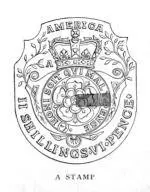
They all took their stand on the principle that, as free-born Englishmen, they could not rightfully be taxed by the House of Commons unless they were represented in that body. But the proviso was added, that if a letter from the secretary of state, coming in the king’s name, should be presented to the colonial assemblies, asking them to contribute something from their general resources to the needs of the British Empire, they would cheerfully, as heretofore, grant liberal sums of money, in token of their loyalty and of their interest in all that concerned the welfare of the mighty empire to which they belonged. These able and temperate memorials were sent to England; and in order to reinforce them by personal tact and address, Franklin went over to London as agent for the colony of Pennsylvania.
The alternative proposed by the colonies was virtually the same as the system of requisitions already in use, and the inefficiency of which, in securing a revenue, had been abundantly proved by the French war. Parliament therefore rejected it, and early in 1765 the Stamp Act was passed. It is worthy of remark that the idea that the Americans would resist its execution did not at once occur to Franklin. Acquiescence seemed to him, for the present, the only safe policy.
In writing to his friend Charles Thomson, he said that he could no more have hindered the passing of the Stamp Act than he could have hindered the sun’s setting. “That,” he says, “we could not do. But since it is down, my friend, and it may be long before it rises again, let us make as good a night of it as we can. We may still light candles. Frugality and industry will go a great way towards indemnifying us.” But Thomson, in his answer, with truer foresight, observed, “I much fear, instead of the candles you mentioned being lighted, you will hear of the works of darkness!” The news of the passage of the Stamp Act was greeted in America with a burst of indignation. In New York, the act was reprinted with a death’s-head upon it in place of the royal arms, and it was hawked about the streets under the title of “The Folly of England and the Ruin of America.” In Boston, the church-bells were tolled, and the flags on the shipping put at half-mast.
But formal defiance came first from Virginia. A year and a half before, a famous lawsuit, known as the “Parsons’ Cause,” had brought into public notice a young man who was destined to take high rank among modern orators. The lawsuit which made Patrick Henry’s reputation was one of the straws which showed how the stream of tendency in America was then strongly setting toward independence. Tobacco had not yet ceased to be a legal currency in Virginia, and by virtue of an old statute each clergyman of the Established Church was entitled to sixteen thousand pounds of tobacco as his yearly salary.
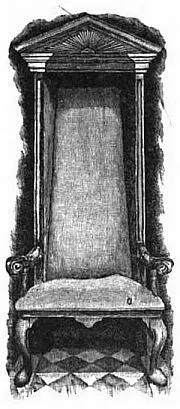
SPEAKER’S CHAIR, HOUSE OF BURGESSES
In 1755 and 1758, under the severe pressure of the French war, the assembly had passed relief acts, allowing all public dues, including the salaries of the clergy, to be paid either in kind or in money, at a fixed rate of twopence for a pound of tobacco. The policy of these acts was thoroughly unsound, as they involved a partial repudiation of debts; but the extreme distress of the community was pleaded in excuse, and every one, clergy as well as laymen, at first acquiesced in them. But in 1759 tobacco was worth sixpence per pound, and the clergy became dissatisfied. Their complaints reached the ears of Sherlock, the Bishop of London, and the act of 1758 was summarily vetoed by the king in council. The clergy brought suits to recover the unpaid portions of their salaries; in the test case of Rev. James Maury, the court decided the point of the law in their favour, on the ground of the royal veto, and nothing remained but to settle before a jury the amount of the damages. On this occasion, Henry appeared for the first time in court, and after a few timid and awkward sentences burst forth with an eloquent speech, in which he asserted the indefeasible right of Virginia to make laws for herself, and declared that in annulling a salutary ordinance at the request of a favoured class in the community “a king, from being the father of his people, degenerates into a tyrant, and forfeits all right to obedience.” Cries of “Treason!” were heard in the court room, but the jury immediately returned a verdict of one penny in damages, and Henry became the popular idol of Virginia. The clergy tried in vain to have him indicted for treason, alleging that his crime was hardly less heinous than that which had brought old Lord Lovat to the block. But the people of Louisa county replied, in 1765, by choosing him to represent them in the colonial assembly.
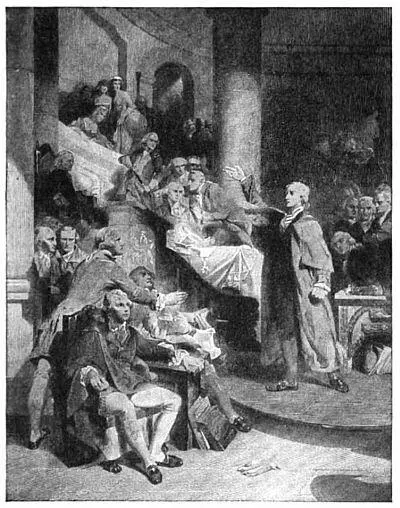
PATRICK HENRY MAKING HIS TARQUIN AND CÆSAR SPEECH
Hardly had Henry taken his seat in the assembly when the news of the Stamp Act arrived. In a committee of the whole house, he drew up a series of resolutions, declaring that the colonists were entitled to all the liberties and privileges of natural-born subjects, and that “the taxation of the people by themselves, or by persons chosen by themselves to represent them, … is the distinguishing characteristic of British freedom, without which the ancient constitution cannot exist.” It was further declared that any attempt to vest the power of taxation in any other body than the colonial assembly was a menace to British no less than to American freedom; that the people of Virginia were not bound to obey any law enacted in disregard of these fundamental principles; and that any one who should maintain the contrary should be regarded as a public enemy. It was in the lively debate which ensued upon these resolutions, that Henry uttered those memorable words commending the example of Tarquin and Cæsar and Charles I. to the attention of George III. Before the vote had been taken upon all the resolutions, Governor Fauquier dissolved the assembly; but the resolutions were printed in the newspapers, and hailed with approval all over the country.
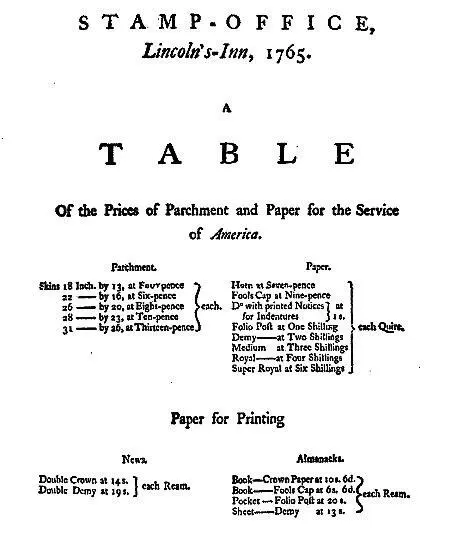
See Transcription Конец ознакомительного фрагмента. Текст предоставлен ООО «ЛитРес». Прочитайте эту книгу целиком, купив полную легальную версию на ЛитРес. Безопасно оплатить книгу можно банковской картой Visa, MasterCard, Maestro, со счета мобильного телефона, с платежного терминала, в салоне МТС или Связной, через PayPal, WebMoney, Яндекс.Деньги, QIWI Кошелек, бонусными картами или другим удобным Вам способом.
Интервал:
Закладка:
Похожие книги на «The American Revolution»
Представляем Вашему вниманию похожие книги на «The American Revolution» списком для выбора. Мы отобрали схожую по названию и смыслу литературу в надежде предоставить читателям больше вариантов отыскать новые, интересные, ещё непрочитанные произведения.
Обсуждение, отзывы о книге «The American Revolution» и просто собственные мнения читателей. Оставьте ваши комментарии, напишите, что Вы думаете о произведении, его смысле или главных героях. Укажите что конкретно понравилось, а что нет, и почему Вы так считаете.
